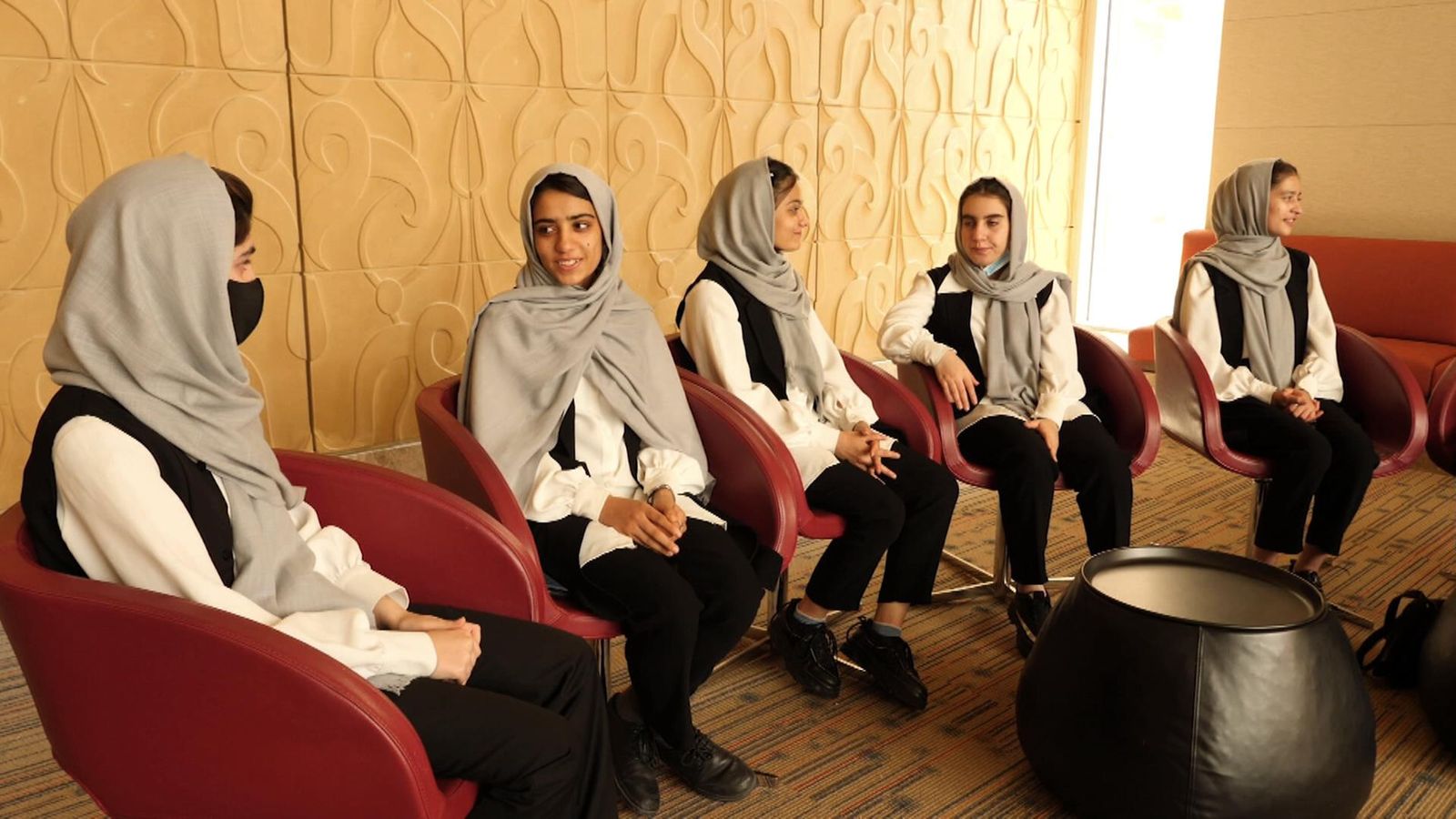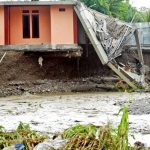These teenagers were supposed to be the future of Afghanistan.
Aged 15 to 18, they have already invented life-saving equipment.
Just a few months ago their robotics team was entering international competitions with their inventions – from a landmine detector to a low-cost ventilator made from car parts during the pandemic.
In the last week they’ve proven they’re as tough as they are talented.
When the Taliban took Herat Province where they lived, their journey to a new life began. First Kabul, then Qatar.
They still don’t know which country will end up being their new home, but when I asked if they had a preference, the bar was low – anywhere that was safe and they could continue their education.
In matching uniforms, they spoke quietly as they introduced themselves. Bravely describing how they left their families so they could continue competitions overseas to follow their dream of becoming engineers.
But as with so many Afghan evacuees I’ve met in Qatar, as soon as they begin speaking about home they break down. What’s happened in the last week has been traumatising for so many. And you feel it everywhere here.
“It was miserable circumstances for us. We left our family.” Nahid Rahimi begins crying at the mention of the word family. “And it was so hard for us because our family is there. And our country is destroyed.”
“We really felt we had to go,” says Sadaf Hadimi. “Because we didn’t have any other choice. Serving our country is getting educated.”
Qatar has evacuated hundreds of students in recent days – mostly young women and girls. All of the ones I’ve met have said they fled to protect their access to education.
Afghan women are terrified of losing their hard-earned freedoms under Taliban rule – education, careers, they can wear what they want, socialise with who they want.
I pressed the Taliban’s spokesperson Suhail Shaheen on what they stand to lose under their rule.
“They will lose nothing. Only if they had no hijab, they will have a hijab. You should not impose your culture on us, and not we imposing our culture on you,” said Dr Shaheen.
“Right now, the teachers they have returned to work. They have lost nothing. The journalists. I mean female journalists. They have resumed their work. Lost nothing.”
Certainly some broadcast journalists have been seen back on air in the last week.
But we’ve heard reports of girls’ schools being closed in other provinces, that women and girls are being told to stay at home or are too afraid to go outside.
Another group of university students evacuated to Doha describe how the Taliban have taken control of their campus in Kabul. Despite assurances, the Taliban is just protecting the university, they felt scared enough to leave the country so they could study in safety elsewhere.
They were born the year the Taliban fell but are all too aware of their fragile freedoms.
“They’re saying these things but I know them, my family, the whole people know what they did 20 years go and what they are doing right now. They are not letting girls go to work, go to gyms, have entertainment and other things.”
Please use Chrome browser for a more accessible video player
The girls described how they left “literally everything” behind. How their bodies have scratches and bruises from the chaotic crowds outside Kabul airport.
They say they’re still Afghan but, in this moment of crisis, they don’t feel part of the Afghan story anymore. They feel written out. Forced to leave to protect their right to education.
All of the Afghan evacuees I’ve met here so far have shared one common wish – that one day they’ll feel safe to return home and help rebuild their country.






















